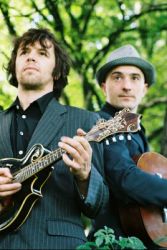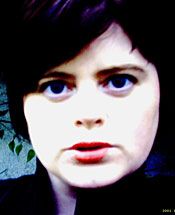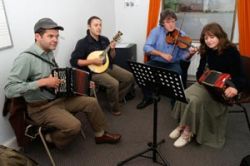IMRO Deploys Award Winning Technology to Streamline Royalty Payment Process
The Irish Music Rights Organisation (IMRO) has deployed a new royalty distribution system designed to meet the demands of the Internet age, as the rapidly growing numbers of music and video streaming and downloads bring more complexity to the role of accurately distributing royalties to IMRO members.
Responsible for collecting monies on behalf of songwriters, composers, music publishers and affiliated members of overseas societies, IMRO has to annually match around 10 million performances to a database of over 8 million copyrighted works. Anticipating an on-going increase in the amount of data it will have to handle, IMRO began to plan and develop a new distribution system to better manage this data and accurately distribute payments to members.
“Music and video downloads and streaming, online rights and the ever-growing radio, TV and on-line market in Ireland have created increasingly larger amounts of data,” explains Declan Rudden, IMRO’s Director of Distribution and IT. “The only way we can address the opportunities these new growing revenue streams present to our members is to be able to process the data more efficiently.”
A Dublin-based IT company, Spanish Point Technologies, devised an innovative solution built on Microsoft technologies including Microsoft SQL Server, Microsoft Windows SharePoint Services (SharePoint) and Microsoft BizTalk Server (BizTalk) to deliver the full range of business functions required by IMRO’s Distribution Department in a single system.
Spanish Point was recognised by Microsoft in its global awards back in July and won Microsoft’s Smart Client Development Partner of the Year category for the IMRO solution.
IMRO customers including radio stations, TV stations and digital service providers, can easily provide usage information in standardised formats which greatly speed up the integration and processing of this data. This data, which contains information about performances, needs to be matched with corresponding composers, songwriters and publishers. This in turn ensures that the right amounts of royalties are paid out. Whilst the concept of royalty sharing is quite simple, the actual data processing is quite complex.
The new system reduces the amount of manual intervention, which lessens the likelihood of human error. Ultimately the new system will support IMRO’s main goal of paying royalties as quickly and as cost effectively as possible. “Because each individual download generates such a small royalty, we couldn’t deal with the processing of these downloads unless we could do it in as automated a way as possible,” says Rudden.
By using recognised technology standards IMRO has also been able to integrate more easily with the International Confederation of Societies of Authors and Composers (CISAC), an umbrella body for collection bodies worldwide. CISAC provides a range of IT tools and services to help societies distribute royalties more effectively. The new system allows IMRO to maximise the benefit of those services.
This new development is the first major phase in a broader IT strategy to upgrade all systems, including the licensing and finance systems, all tightly integrated in an overall site automated system. In addition there are plans for the deployment of a whole suite of office collaboration systems including a documentation management system and archive, work flow systems including performance management systems, purchasing process, and systematic elimination of inefficient paper based processes. Other major developments include research and trials in “fingerprinting” software to enable accurate measurement of music usage in broadcasting.
ABOUT IMRO: The Irish Music Rights Organisation (IMRO) is the national body for administering performing rights in copyright music on behalf of songwriters, composers and music publishers, as well as affiliated members of overseas societies. A non-profit organisation, it employs 35 staff and is based in Dublin.
ABOUT SPANISH POINT TECHNOLOGIES: An IT Company delivering solutions based on Microsoft technologies. It provides a unique blend of local design, consulting and project management skills combined with a dedicated off-shore development capability.


 “femmepop is singer/songwriter Margaret O’ Sullivan. Having paid her dues in previous cork bands Margaret wanted to create her own sound and go solo.
“femmepop is singer/songwriter Margaret O’ Sullivan. Having paid her dues in previous cork bands Margaret wanted to create her own sound and go solo.



 “INTIMATE, INTELLIGENT, INTOXICATING†is what Hotpress said of Dubliner David Hopkins debut single, Amber and Green, while awarding it ‘Single of the Issue´. Now David is about to release his first Irish album. “INTELLIGENT + FIERCELY CREATIVEâ€- Hotpress
“INTIMATE, INTELLIGENT, INTOXICATING†is what Hotpress said of Dubliner David Hopkins debut single, Amber and Green, while awarding it ‘Single of the Issue´. Now David is about to release his first Irish album. “INTELLIGENT + FIERCELY CREATIVEâ€- Hotpress THE PALE NEWS
THE PALE NEWS Callino Quartet
Callino Quartet Music Network (Ireland) and Creu Cymru (Wales) present Celtic Connections-a celebration of Celtic traditional music uniting two wonderful duos from opposite sides of the Irish Sea. The Hibernian songbook has no more enthusiastic champions than acclaimed accordionist Josephine Marsh and her regular band-member and mandolin/bouzouki player extraordinaire Declan Corey. Joined by fiddler Gareth Westacott and melodeon player Guto Dafis, who combine to form the Cardiff-based group Toreth, the ensemble can heard at the Coach House, Dublin Castle on Thursday 22 September at 8pm. Tickets at €14 (€10 conc.) are available from (01) 671 9429. Celtic Connections is sponsored by CCAT @ Temple Bar & Aberystwyth Arts Centre. Music Network tours are grant-aided by the Arts Council and are presented in association with The Irish Times and RTÉ lyric fm. Further information from Music Network at (01) 671 9429 or
Music Network (Ireland) and Creu Cymru (Wales) present Celtic Connections-a celebration of Celtic traditional music uniting two wonderful duos from opposite sides of the Irish Sea. The Hibernian songbook has no more enthusiastic champions than acclaimed accordionist Josephine Marsh and her regular band-member and mandolin/bouzouki player extraordinaire Declan Corey. Joined by fiddler Gareth Westacott and melodeon player Guto Dafis, who combine to form the Cardiff-based group Toreth, the ensemble can heard at the Coach House, Dublin Castle on Thursday 22 September at 8pm. Tickets at €14 (€10 conc.) are available from (01) 671 9429. Celtic Connections is sponsored by CCAT @ Temple Bar & Aberystwyth Arts Centre. Music Network tours are grant-aided by the Arts Council and are presented in association with The Irish Times and RTÉ lyric fm. Further information from Music Network at (01) 671 9429 or 